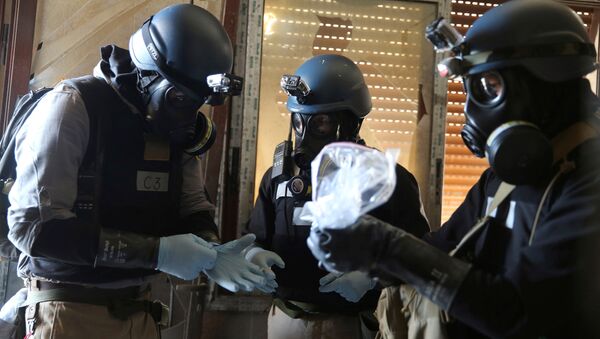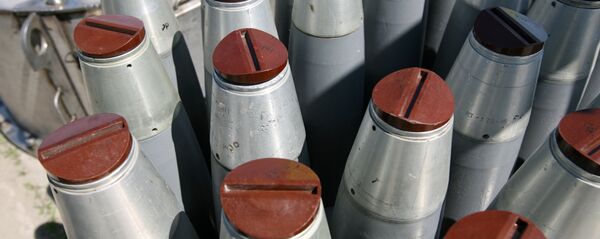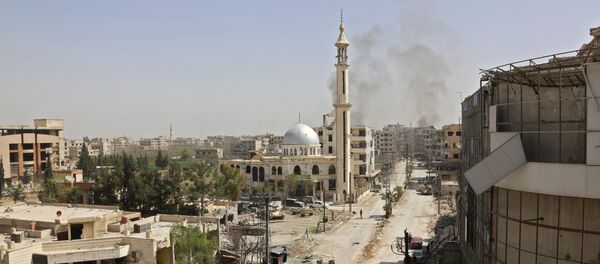A new mechanism to probe Syrian chemical attacks is needed, as the previous one has turned out to be a failure, Syrian Deputy Foreign Minister Faisal Mekdad told Sputnik Arabic.
"Russia proposed the UN Security Council creating a new commission to investigate the cases for the use of chemical weapons in Syria to replace the joint UN-OPCW [Organization for the Prohibition of Chemical Weapons] mission [Joint Investigative Mechanism (JIM)]," Mekdad elaborated. "However, the Russian project was rejected over differences in vision on the commission's future work. Russia wants the investigation to be conducted by depoliticized professionals and conclusions to be made on the basis of proven data; the sources should be trustworthy while the work carried out with the maximum transparency."
The Russia-proposed mechanism sought to oblige UN experts to visit the sites of chemical attacks in order to collect all the evidence about supposed attacks.
The draft document said that "the UNIMI in conducting its investigations must be guided by high standards established by the CWC [Chemical Weapons Convention] and, accordingly, use the whole spectrum of relevant methods envisaged in the above-mentioned Convention and in particular Part XI of its Annex on Implementation and Verification, which includes investigation, sampling, interviewing witnesses and collection of evidence and information on the site of an incident."
Moscow's initiative was hailed by Chinese Ambassador to the United Nations Liu Jieyi, who told members of the UN Security Council on January 23, 2018 that Beijing "welcomes the draft resolution distributed by Russia on establishing a new investigative mechanism on Syrian chemical weapons."
Referring to JIM, Mekdad underscored that "the previous joint investigation mechanism has failed."
"It became an instrument of political manipulation in the hands of some countries," he pointed out. "Russia has consistently stated that it is fully prepared to monitor its work."
"We hear the US State Department's false accusations that we are blocking investigations into the use of chemical weapons in Syria. But we have responded to all these statements," Mekdad stressed.
While addressing the United Nations-sponsored Conference on Disarmament in Geneva on February 28, Syrian Envoy to the United Nations Hussam Edin Aala reiterated that Damascus destroyed its chemical weapons stockpiles several years ago.
"Syria cannot possibly be using chemical weapons because it very simply has none in its possession," Aala said.
The envoy's comment came after US State Department spokeswoman Heather Nauert unfoundedly accused Damascus of using chemical weapons near Idlib's city of Saraqib.
"The [Syrian] government resolutely declares that it does not possess any weapons of mass destruction, including chemical weapons," Mekdad pointed out. He highlighted that "the use [of chemical weapons] under any conditions, at any time and in any place is completely unacceptable and immoral. At the same time, the US is rushing to point the finger of blame at Russia and Syria after every case involving the use of poisonous substances, without waiting for the results of a professional independent investigation."
"This theatrical gesture will be carried out with the participation of a number of countries, the White Helmets, and will be covered in Western media," Jaafari revealed, adding that the supposed attack will take place on the Syria-Turkey border.
Previously, the same warnings were issued by the Russian center for Syrian reconciliation in January 2018 regarding potential provocations involving chemical poisonous agents in Eastern Ghouta.
Although Damascus has been repeatedly accused of the use of chemical weapons in Syria by opposition groups on the ground, including the infamous White Helmets organization operating in the jihadist-held areas, the Syrian government has refuted the unfounded claims, referring to the fact that it destroyed its chemical weapons arsenal in 2014 under the supervision of the OPCW.





